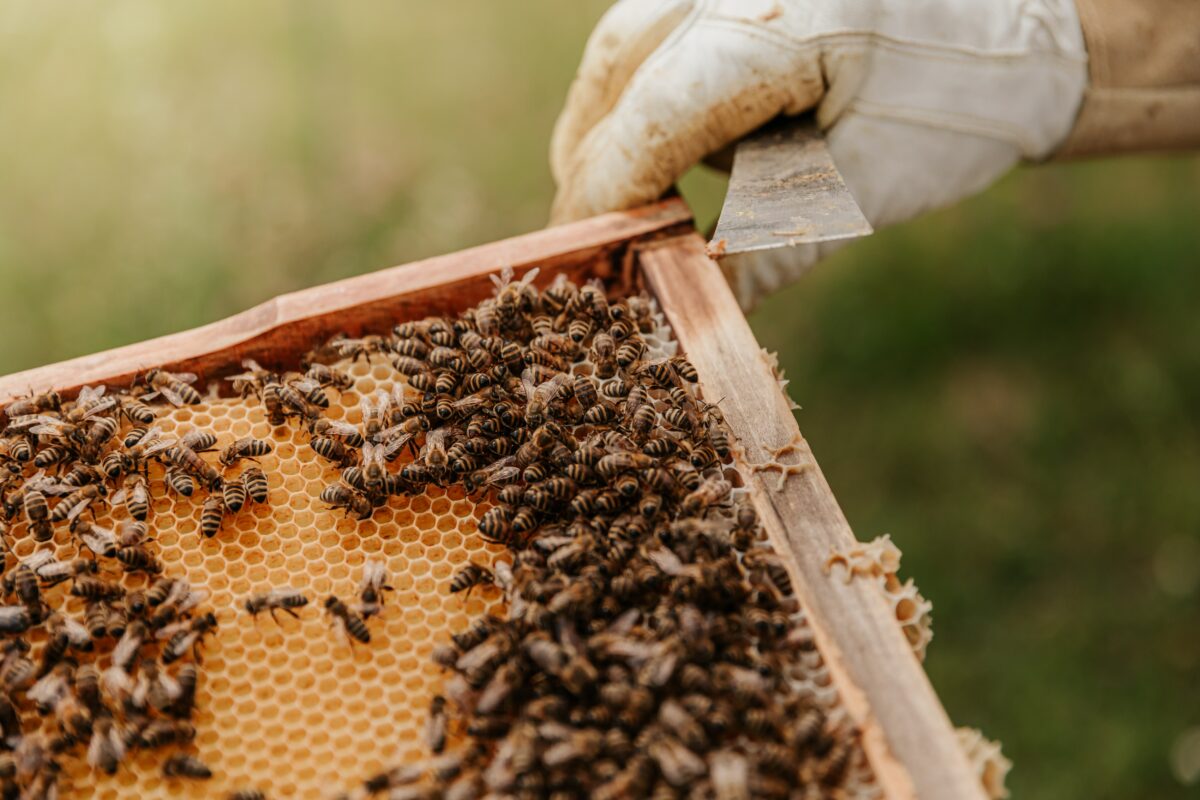
The Sheridan Student Union is installing beehives at the Trafalgar and Davis campuses.
The bees being brought to Sheridan campuses are honey bees. On the Davis campus, the hives are in the southwest corner of the property, near the A-wing. At Trafalgar, they can be found by the athletics building.
The idea of introducing bee boxes on campus has been in discussion at Sheridan for some time now.
“We came across this [idea] at a food show about five years ago, the concept of having this hive hosting program,” says Dan Casey, Senior Manager of Operations and Hospitality at the SSU.
“There was always a lot of interest, but nobody had really pulled the trigger,” says Casey. “Then about a year and a half ago some faculty had approached the college about having hives on campus, and then it got to us because the campus didn’t have the budget for it.”
According to Casey, the SSU has signed a three-year commitment for this initiative.
The SSU has partnered with Ted Parkes of Teddy Bee Honey, a small business based in Mississauga. Their website says their bees are managed in “the most holistic way possible”, meaning only naturally produced products are used to treat the bees and all honey is unpasteurised and extracted and bottled by hand.
Their website also includes helpful information for anyone interested in hive hosting.
“I grew up in rural Ontario, so living in the suburbs, I thought it’d be a good idea to have some bees in the backyard,” says Parkes. “It was about ten or twelve years ago when we were just starting to hear about the colony collapses, so I thought I would do my part and have a couple of hives in the backyard.”
The hives will primarily be maintained by Parkes, although the SSU and Teddy Bee Honey expressed interest in the learning opportunities these installations can provide for Sheridan students and their communities.
Parkes has provided educational workshops for the CNE in the past and hopes to provide similar experiences for the Sheridan students. Students can expect one or two workshops a year about how the hive-hosting program works, how colonies are maintained, and hopefully gain some insight into the ongoing pollinator crisis in North America.
While honeybee populations have started to recover in the last year, not enough is being done to save Canada’s native bee populations. Urban beehives have been introduced by many community centres and college and university campuses, but the hives themselves are just one small factor that may help with the overall problem.
“What’s probably more important than people wanting to keep bees to help the [bee] population is planting flowers and forage,” says Parkes. “Honeybees are managed by commercial beekeepers and hobbyists like myself, but the loss of habitat for our native species and pollinators is a bigger issue than the plight of the honeybee on its own.”
Make sure to check out the SSU’s social media pages for updates and possible live footage of the hives.
